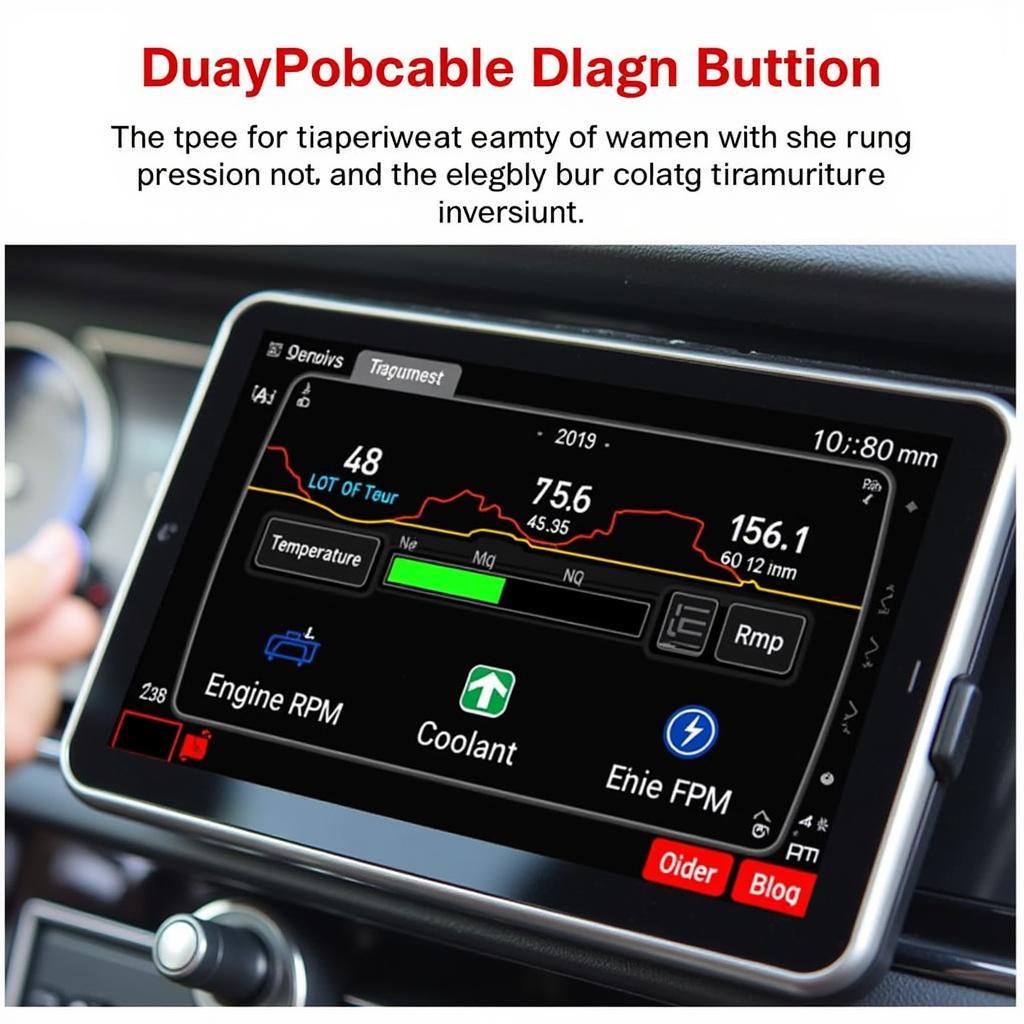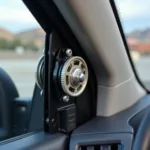Choosing the best car diagnostic tool can feel overwhelming with so many options available. Whether you’re a professional mechanic or a DIY enthusiast, having the right scanner can save you time, money, and frustration. This review aims to help you navigate the market and find the perfect diagnostic tool to meet your needs.
Understanding Your Diagnostic Needs
Before diving into specific products, it’s crucial to understand what you need from a car diagnostic tool. Are you looking for basic code reading capabilities or advanced functionalities like live data streaming and bi-directional control? What car makes and models do you work with? Your answers will significantly influence your choice. For example, some tools specialize in European vehicles, while others excel with domestic brands. Knowing your requirements will help you narrow down your choices and find the best fit.
Do you need a professional-grade tool for complex diagnostics or a more affordable option for simple code reading and clearing? Consider features like ABS, SRS, and transmission system diagnostics. Do you want a handheld device, a PC-based system, or a wireless option that connects to your smartphone or tablet? The best car diagnostic tool depends on your specific requirements and budget. Thinking about these aspects beforehand will save you time and ensure you make an informed decision.
After the initial evaluation, you might want to explore options like a car electrical diagnostic drive-in for a more hands-on approach. You can find more information about local options at car electrical diagnostic drive-in.
Types of Car Diagnostic Tools
The market offers a variety of diagnostic tools, ranging from simple code readers to sophisticated professional scan tools.
- Code Readers: Basic devices designed primarily for retrieving and clearing diagnostic trouble codes (DTCs). These are ideal for DIYers who want to understand why their check engine light is on.
- OBD-II Scanners: Offer more advanced features than basic code readers, such as live data streaming, freeze frame data, and emissions readiness checks. They are suitable for both DIYers and professional mechanics.
- Professional Scan Tools: These high-end tools provide comprehensive diagnostic capabilities, including bi-directional control, advanced coding and programming, and access to manufacturer-specific data. They are primarily used by professional technicians and workshops.
Key Features to Consider in the Best Car Diagnostic Tool
When reviewing diagnostic tools, consider these essential features:
- Vehicle Coverage: Ensure the tool supports the makes and models you work with, including specific protocols and systems.
- User Interface: A clear, intuitive interface is crucial for easy navigation and efficient diagnostics.
- Software Updates: Regular software updates are essential to keep the tool compatible with newer vehicles and technologies. Look for tools with free or affordable update options. Some manufacturers, unfortunately, charge a premium for these updates. You might want to read more about it on what car manufacturers make you pay for diagnostic south africa.
- Data Logging and Reporting: The ability to log data and generate reports can be valuable for tracking repairs and sharing information with customers.
- Durability and Portability: Choose a tool that can withstand the rigors of a workshop environment. Portability is also important if you need to use the tool in various locations. If you’re looking for options available on online marketplaces, check out resources like amazon uk car diagnostic tool.
 Best OBD2 Scanner Features Display
Best OBD2 Scanner Features Display
What are the benefits of using a professional-grade diagnostic tool?
Professional-grade tools offer advanced functionalities like bi-directional control, allowing mechanics to test components and diagnose complex issues more efficiently. They also provide access to manufacturer-specific data, which can be crucial for certain repairs.
“Investing in a high-quality diagnostic tool is essential for any serious automotive professional,” says John Miller, a certified master technician with over 20 years of experience. “It pays for itself in time saved and accurate diagnoses.”
How to choose a diagnostic tool for DIY use?
For DIYers, an OBD-II scanner with live data streaming and code clearing capabilities is often sufficient. Consider the specific systems you want to diagnose and choose a tool that covers those areas. If you live in specific areas, you may want to search for local repair options such as car diagnostics brakpan. For more information about this, check car diagnostics brakpan.
“A good OBD-II scanner can empower car owners to understand and address basic car problems,” says Sarah Chen, an automotive engineer. “It’s a valuable tool for any DIY enthusiast.”
Conclusion
Finding the best car diagnostic tool requires careful consideration of your specific needs and budget. By understanding the different types of tools available and the key features to look for, you can make an informed decision that will improve your diagnostic capabilities and save you time and money. Whether you’re a professional or a DIYer, the right diagnostic tool is an invaluable asset. You can also look for specific services like car diagnostics rockville md if you’re in that area. More info can be found here: car diagnostics rockville md.
FAQ
- What is an OBD-II port?
- What are diagnostic trouble codes (DTCs)?
- How often should I update my diagnostic tool’s software?
- Can I use a professional scan tool for DIY repairs?
- What is bi-directional control?
- How do I choose the right diagnostic tool for my car?
- Where can I find reliable reviews of car diagnostic tools?
Need Help with Car Diagnostics?
If you need assistance with choosing the right diagnostic tool or require any car repair services, contact us via WhatsApp: +1(641)206-8880, Email: [email protected]. Our team is available 24/7 to answer your questions and provide expert advice.


